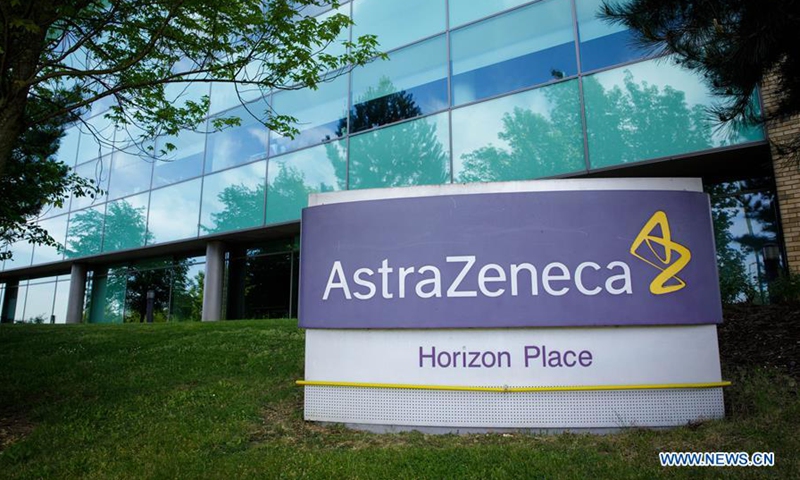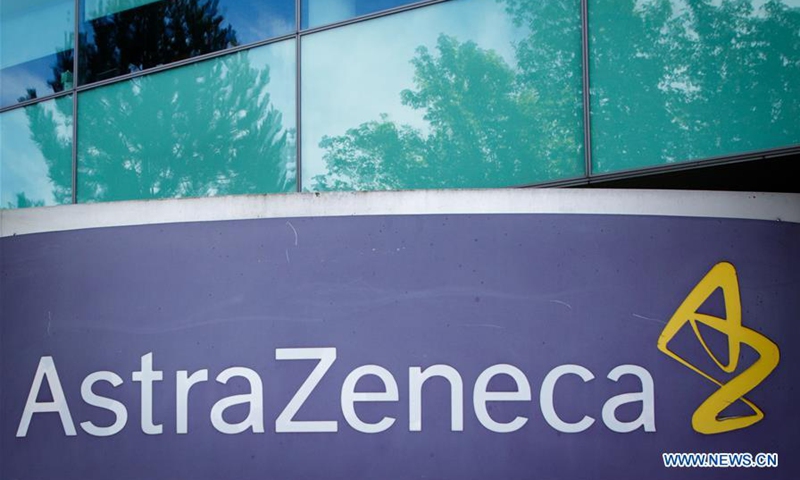Portuguese PM says AstraZeneca's vaccine-trial pause "bad news"
Source: Xinhua Published: 2020/9/10 10:07:44

Photo taken on May 18, 2020 shows a logo in front of AstraZeneca's building in Luton, Britain. AstraZeneca, which is developing a possible vaccine against COVID-19 in partnership with the University of Oxford, on Wednesday put on hold the phase-3 trial of its vaccine following an unexplained illness in one trial participant in Britain. (Photo by Tim Ireland/Xinhua)
Portuguese Prime Minister Antonio Costa on Wednesday said it's "bad news" that British-Swedish pharmaceutical giant AstraZeneca decided to suspend trials of a COVID-19 vaccine candidate, local media reported.
AstraZeneca, which is developing a possible vaccine against COVID-19 in partnership with the University of Oxford, on Wednesday put on hold the phase-3 trial of its vaccine following an unexplained illness in one trial participant in Britain.
"Last week, there was enormous optimism that the process of advancing vaccines was fast. Today, we all wake up with bad news that at least one vaccine process had to be suspended. It is an uncertain factor," Antonio Costa told reporters during a visit to the Contemporary Textile Art Biennial in north Portugal.

Photo taken on May 18, 2020 shows a logo in front of AstraZeneca's building in Luton, Britain. AstraZeneca, which is developing a possible vaccine against COVID-19 in partnership with the University of Oxford, on Wednesday put on hold the phase-3 trial of its vaccine following an unexplained illness in one trial participant in Britain. (Photo by Tim Ireland/Xinhua)
"We don't know -- nobody knows -- when the pandemic ends, but we know that until there is a vaccine, it will not disappear," the prime minister was quoted by Portuguese Lusa news agency as saying.
At a virtual briefing on Aug. 6, Michael Ryan, executive director of the World Health Organization's Health Emergencies Program, said that six COVID-19 vaccine candidates had entered phase-3 trials.
Of the six vaccine candidates, three are from China -- made by Sinovac, Wuhan Institute of Biological Products/Sinopharm, and Beijing Institute of Biological Products/Sinopharm, said Ryan.
The other three are made by the University of Oxford/AstraZeneca, Moderna/NIAID, and BioNTech/Fosun Pharma/Pfizer, he added.
Posted in: EUROPE